Max Richter at the Barbican
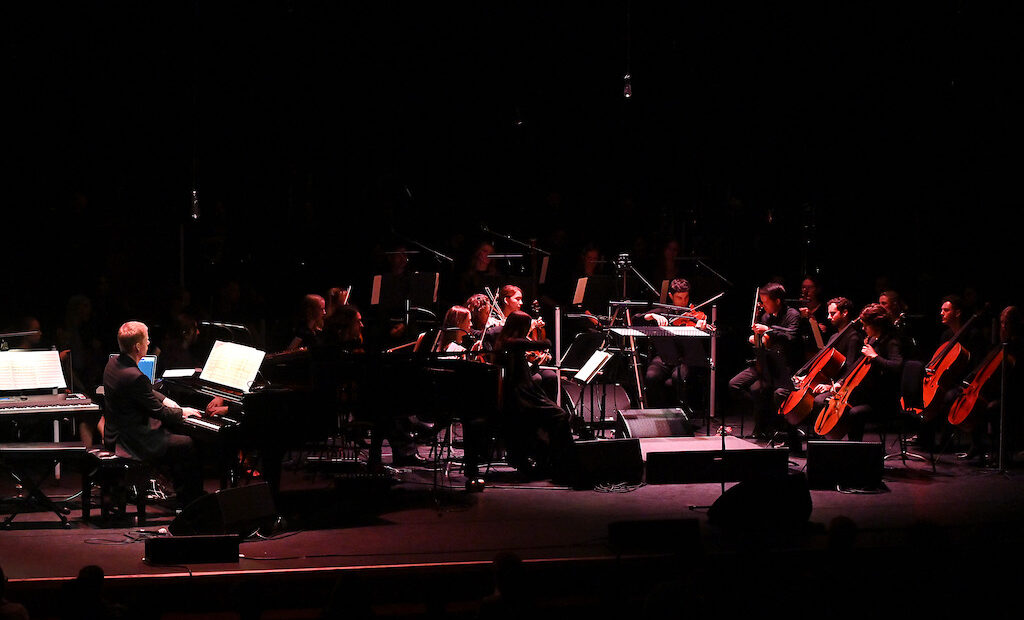
German-born, British-raised composer Max Richter performed two shows at the Barbican Hall this weekend, and Saturday looked to be sold out in the hall that holds nearly 2,000 people.
This highly anticipated return to the Barbican explores the interplay between classical, ambient and electronic music, with ambient music played by a full acoustic orchestra, rather than with electronic instruments. String orchestra 12 Ensemble have especially expanded to include wind, brass, percussion, harp and piano; the array of instruments on display is extravagant: there are two full-sized harps, no less, a marimba, a set of timpani and a bass drum the size of a family kitchen table. Richter himself sits at a grand piano, giving relaxed descriptions of the works before they are played.
The performance consists of six pieces – three of which are being played in the UK for the first time – and an encore. Without including the interval, this clocks in at over two hours of music. Richter’s oeuvre is complex and insistent; it uses repetitive phrases that build over their duration, both soothing and hypnotic. The expansion of the instrumental forces creates a beautiful, complex sound that washes over the audience and highlights the skill in Richter’s compositions.
The evening opens with Testament, performed only once before on Polish television in March 2021. It is followed by The Waves, the closing section of Richter’s eighth album, Three Worlds: Music from Woolf Works, about the author’s life, which was scored for a ballet choreographed by Wayne McGregor. Richter has described it as “a mini requiem” for Virginia Woolf. The work includes the voice of soprano Grace Davidson, singing wordless notes so high and clear, they are other-worldly, like a transmission from another galaxy.
Dream 19 (Pulse) comes from Richter’s seventh record, Sleep, the landmark eight-hour opus that the Barbican staged in 2017 at the nearby Old Billingsgate Market, where beds were provided for a unique experience. Richter created music that worked harmoniously with brainwaves during sleep for a refreshing experience that encouraged listeners (or sleepers) to step away from the world of endless consumption for a moment.
Arbenita (11 Years) is “a wordless response to a poem that an 11-year-old contributed to the book, Voices from Kosovo“, says Richter. “The political and social dimension is especially relevant now, given the situation in Ukraine.”
For Opus 2020, Beethoven is reimagined through loops of specific musical motifs, as though the original music is playing through many radios at once and the orchestra is creating that. In Exiles, Richter evokes the journey of refugees through almost interminable repeating loops that gradually build in intensity to a cathartic crescendo as a new home is sighted in the distance and then reached.
Each number has its own sympathetic lighting design, sometimes echoing the building of the music, the lights gradually getting brighter and more intensely focused on the audience, which is simple but effective. Other examples use rods of light dotted through the players with blue projections moving unctuously up and down them like lava lamps.
For an encore, Richter plays On the Nature of Daylight from his 2002 album The Blue Notebooks. This is a rare treat. The song has captured listeners’ imagination so much that it has featured in everything from a Scorsese film to Eastenders’s 35th anniversary, but is rarely played live by the composer. The piece uses swelling layers of strings to create heartfelt hope from the melancholy layers. It is a suitable end to a show of musical exploration and restrained grandeur.
Jessica Wall
Photos: Mark Allan
For further information and future events visit Max Richter’s website here.
Watch the video for the single All Human Beings here:


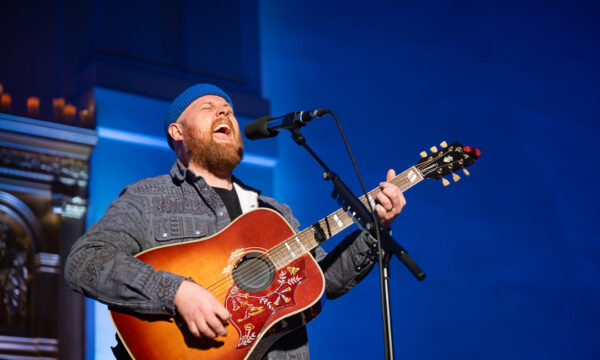
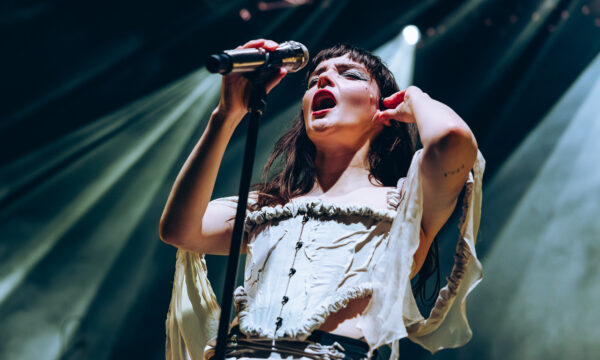

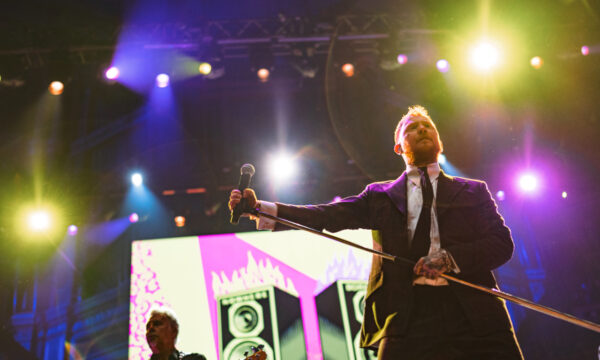
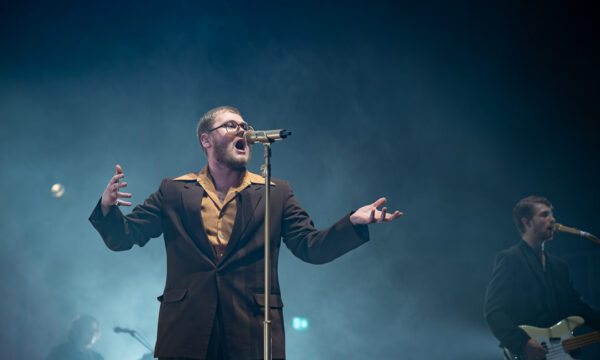
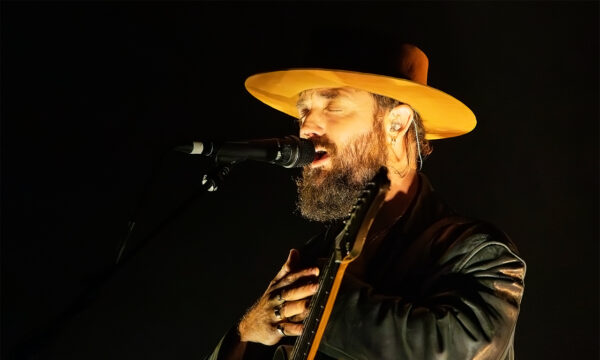
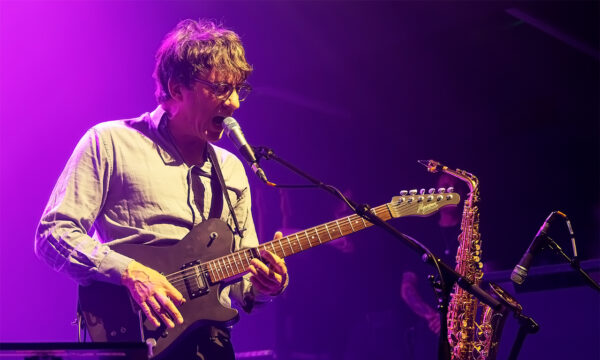
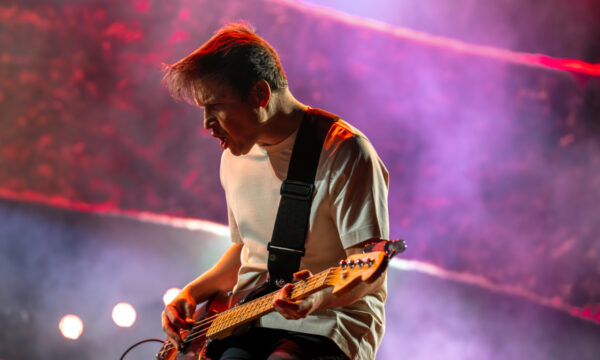










Facebook
Twitter
Instagram
YouTube
RSS